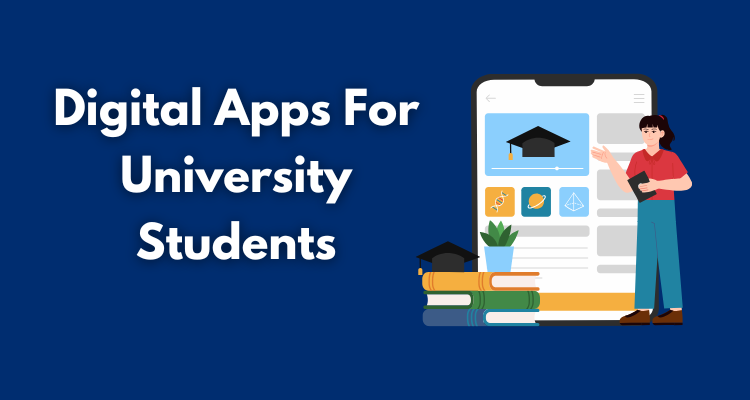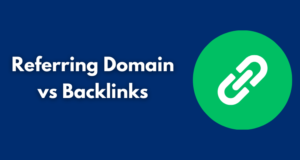Sometimes, learners feel stuck with heavy workloads in college. That is a normal feeling when assignments pile up, and time is short. But beyond that option, there are many digital apps that can help. Today, mobile apps for universities serve many purposes. Some track class schedules, while others allow quick access to course materials.Many of these solutions are free or low-cost, which is helpful for busy college students who want to keep budgets in check. These applications are also easy to set up on phones, tablets, or laptops. They can sync notes across devices and share files with classmates. This helps students gather resources for projects, store important documents, and stay on track with deadlines.
From note-taking platforms to interactive quiz software, these versatile tools fit different study habits. By embracing such study apps for college students, each learner can find the best method to stay organized and motivated—even during those moments when they think, “I wish I could pay someone to do my homework.”
Table of Contents
ToggleThe Role Of Mobile Apps For Universities

Modern learning heavily relies on smart devices. Students want fast access to course details, practice tests, and social groups. This is where mobile apps for universities prove handy. They connect classmates, teachers, and campus news in one spot. Some of these apps also share live event updates and reminders. By using them, learners can track upcoming deadlines and get instant help.
Universities often develop their own digital platforms. These can store class info, notes, and recorded lectures. They help each user study in a structured way. This is useful for college students who juggle exams, part-time jobs, and social events. With these education tools, they can manage daily tasks with less hassle. Also, many of these apps let students connect with support offices or tutoring services.
In short, mobile apps are no longer a fancy add-on. They are a core part of higher education. With just a few taps, learners can organize their course load, chat with peers, and stay on top of new updates.
Essential Educational Apps For Students
Many educational apps for students cater to different study preferences. Some focus on reading comprehension, while others promote group collaboration. A few examples include flashcard makers, language practice tools, or math drill games. Each option aims to make learning more fun.
That way, college students do not have to rely only on heavy textbooks or lecture slides. Digital apps also help students manage time better. For instance, some platforms use timers or gentle alarms that keep users on track. Others offer checklists to ensure no class project or homework assignment goes undone. These apps often include progress tracking, so students see how far they have come.
Also, these programs may connect with cloud services. This feature allows data backups or synchronization across multiple devices. Students can open their work from a phone, then continue on a laptop or tablet. These unofficially become study tools for any subject, from history to computer science. With just the right combination, learners can explore and grow at their own pace.
Best Study Tools For College Students
Study tools for different subjects can give learners an edge. Some are built to create flashcards, organize notes, or map out ideas. Others let users highlight text, attach web links, or set quick reminders. By mixing these approaches, college students can keep track of lessons and reduce confusion.
Many of these platforms also include library search features, which help speed up research tasks. Study apps for college students can offer more than simple question-and-answer formats. Some feature video lessons, practice quizzes, and real-time feedback. Others connect with peers for study groups or shared projects. These tools go beyond just storing data; they offer ways to make information stick.
Education tools that target memory retention often encourage spaced repetition. This boosts recall and helps learners build a strong foundation. Some programs send alerts when it is time to review older material. With this method, students remember key ideas longer. By taking advantage of each tool’s unique function, learners can streamline their workloads without much fuss.
Effective Study Apps For College Students
Effective study apps for college students come in many forms. Some help break large tasks into smaller pieces, lessening the pressure. They do this by letting users set bite-sized goals and celebrate little wins. Others focus on blocking digital distractions, such as social media or fun websites during study hours.
By keeping distractions away, students can learn faster. Many new study apps also reward consistent use. Some give badges or points for daily logins or completed tasks. These fun touches help learners stay motivated. Education tools like scheduling apps, flashcard makers, or progress trackers all work toward the same goal: building smart study habits.
They promote balance between learning, rest, and free time. Certain platforms also connect with classmates who share similar course loads. This fosters a team spirit while addressing questions.
With the help of digital apps, it becomes easier to manage group projects, compare notes, or discuss tricky topics. Over time, these supportive features can help students build confidence.
Maximizing Education Tools In Class
Besides at-home study, learners can use education tools during lectures. Some apps record audio for replay later, while others let students type quick notes and link them to slides.
This helps them stay organized when a professor moves fast. Digital apps also allow users to mark sections they find confusing, so they can revisit them later. In most courses, time is limited. Teachers must move through big topics quickly.
That is why using study tools for class can keep everyone on pace. Some apps can even convert speech to text, helping those who prefer written notes. Others highlight essential ideas automatically, reducing time spent rewriting entire lessons. These tools can be shared with classmates.
For example, one student might compile detailed notes, then share them with friends. This boosts collaboration while cutting down on repetitive work. By harnessing modern technology, college students find more ways to stay alert and engaged. They also build a resource library that extends beyond classroom walls.
Enhancing Digital Learning With Collaboration
Group projects often stress students, but digital apps can simplify them. Many educational apps for students have shared boards or cloud storage. This enables team members to post research findings or discuss ideas in real time. Instead of passing notes, they can collaborate from anywhere with an internet connection.
College students usually have schedules that vary, so finding a common meeting time is tough. Apps that provide chat rooms or shared calendars help solve that issue. Each participant can post updates or ask for help, even when offline. These platforms keep group tasks moving forward.
They also store all documents in one place. Additionally, some apps allow live editing, so multiple people can type on the same page at once. This prevents confusion caused by version mismatches.
By combining these teamwork features with other study tools for planning, groups can reach deadlines on schedule. Students also gain important communication abilities that will carry over into future projects.
Study Habits And Scheduling
Every student has their own pace, and digital apps can adapt to that. Some learners prefer studying in short bursts, while others like longer sessions. Scheduling apps allow people to set daily goals, note important exams, and mark personal events.
They keep track of everything in one spot, so college students can see a clear picture of their entire week. Setting reminders or notifications helps students stay on top of tasks. Some apps will buzz them an hour before a quiz or a day before final papers are due. This prevents last-minute cramming and reduces stress. By spreading out study time, learners can do better in tests and enjoy steady progress.
In addition, these scheduling tools can sync across phones, laptops, and tablets. That way, users never miss important to-do items.
Many also allow color-coding or labeling for each subject. This speeds up scanning through tasks at a glance. With these simple aids, building productive study habits becomes easier, even under heavy workloads.
Engaging Resources For Group Projects
Group projects benefit from creative ideas and smooth coordination. Digital apps can provide engaging resources that spark teamwork. Brainstorming programs transform random thoughts into structured outlines. Some have drag-and-drop features that let members sort tasks by priority.
This keeps everyone on the same page, reducing misunderstandings. When it comes to dividing tasks, some apps allow each person to mark their progress. That way, the rest of the team can see what is left to finish. For instance, a single shared board might show research tasks, design work, and final proofreading. Everyone can comment or make suggestions.
In addition, collaborative document tools allow real-time edits from multiple users. By posting feedback within these documents, each group member avoids separate email threads. This saves time and lowers the chance of confusion.
With mobile apps for universities, it is simpler to gather references, store images, or share drafts. Working together becomes more direct. Each member can bring their strengths without messy coordination.
Technology keeps advancing every day, and with it comes fresh possibilities for learning. Digital apps now serve as powerful helpers, not just passing trends. For many college students, these platforms are essential. They boost efficiency, support collaboration, and keep information all in one place.
Whether students want to take quick notes or plan major assignments, there is an app that fits their style. Exploring different educational apps for students allows learners to find the perfect match. Each one has unique features, from detailed progress tracking to instant communication channels.
By mixing these solutions with old-fashioned study methods, students can aim for top results without feeling overwhelmed. Many study apps for college students also help with stress management, offering gentle reminders to rest or celebrate small wins.
In short, the digital world is brimming with education tools that can transform daily routines. Adopting the right platforms will help students stay ahead. With commitment and the right resources, anyone can thrive during their university years.










